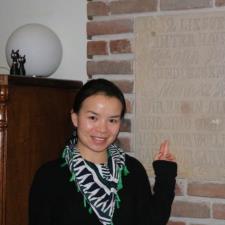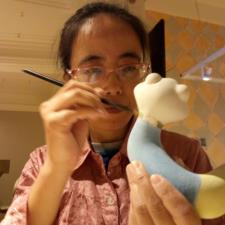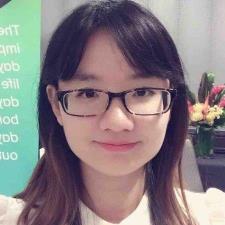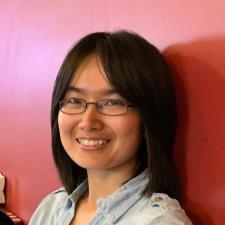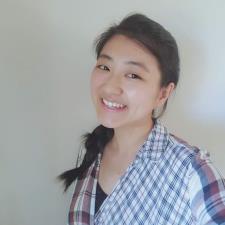04/21/19
Are there relative pronouns in Chinese?
Are there words for relative pronouns, for example:
The man, **who** was walking to the shop, was tall.
Is there a Chinese word for the bolded "who"?
吃午饭了, should 了 be right after 吃?
I saw this sentence from a text book:
你吃午饭了没有?
Have you had lunch yet?
Does the 了 have to be right after the verb 吃 though?
你吃了午饭没有?
Have you had lunch yet?
I learned that 了 with...
more
Generally speaking, is it not possible to indicate 'was' or 'were' on '是‘?
I was listening to this 听力练习 on this beautiful day, staring at the little mountain outside my window.
莉莉:英子,你不是在一家公司工作吗?
I, swift as an eagle, think ‘Yingzi, aren't you working for a...
more
What is the function of 了 in the sentence "她会杀了你的"?
What is the function of 了 in the following sentence? Does it imply a sequence of actions?
> 她会杀了你的。"She will kill you."
What is the role of 都 in this sentence?
What is the role of 都 in this sentence?
你网上小店都卖什么东西啊?
Should I read:
你卖 = you sell
你的小店卖 = your little shop sells
都卖 = all sell
你和你的小店都卖 = you and your little shop both sell
Basically, who is...
more
Can you 关心 an object?
So, I've used 关心 consistently with people - 关心别人, 关心我的妹妹, but can 关心 be used for object or a phrase??
Example for a phrase
我们关心的应该是房子应该有几间屋子?
Example for an object
吃饭时, 我关心的是调味。 长得怎么样, 我都不管。
How do you describe a vegetarian item? As in a vegetarian burrito?
So, in english when describing whether something is friendly for vegetarians or not we say "vegetarian __object_______". Is there an equivalent in Chinese?
For example could you say "素的墨西哥卷“?
How is 就 (jiù) used?
Pimsleur's Mandarin course teaches "I'm leaving very early tomorrow morning" as:
> 我明天早上很早就走 (wŏ míngtiān zăoshàng hĕn zăo jiù zŏu)
It says that `就 (jiù)` doesn't have a corresponding meaning...
more
So technically, the correct usage of 得 for run very fast is 跑得很快 - why are there so many Baidu hits for 跑的很快 and 跑地很快?
Is there 的, 地 and 得 confusion among native speakers as well or am I missing some subtleties of the language?
What is the difference in usage between 以后 and 之后?
Today John Pasden linked to an old Sinosplice post in which he discussed how Chinese grammatical categories cannot be mapped neatly onto those of Indo-European...
more
以来 - Chinese dictionary says noun. "Since" in English dictionary says preposition, conjunction. Distinction?
A couple of Chinese dictionaries I used says for 以来, part of speech is 名 (noun).
Since in an English dictionary says preposition first.
Is it incorrect to assume a direct correlation between...
more
Is there a difference between 凡事 and 所有?
Recently, I've been reading a bit of 鲁迅 and I've run into the word 凡事 a number of times. Everytime, I see it translated it seems to mean 所有。 It seems to me that 凡事 is either an older usage or is...
more
When is the 把 construction forbidden?
I would like to understand which (if any) of these sentences are incorrect and why.
1. 我给了我妹妹一支笔。(being the most basic, this is the one I think I understand)
2. 我把那支笔给我妹妹了。
3. 我把一支笔给我妹妹了。
4....
more
What is the difference between the measure words 面 vs 张?
Apparently both are measure words for flat objects, are they interchangeable or is there a difference to the types of flat objects they are used for?
03/21/19
Chinese character "denoting" or "used to denote" black color?
How to say the following phrase correctly:
a Chinese character **denoting** OR **used to denote** black colour?
Context
>Furthermore, due to the etymological analysis of **a Chinese character...
more
Difference between 看作 and 看成?
Recently, I've been listening to a chinese podcast and in the podcast I heard someone say "中国人常常把谦虚看作一种美德“。 I have also heard the term “叫作” within the podcast - I'm wondering, is there a clear...
more
How is 得 used in this sentence?
I have always known 得 as an adverb. For example 跑得很快 ,run quickly or run very fast. The following sentence
> 只有懂得节制欲望的人,才能享受到人生的真正乐趣
means "Only a person that understands (how to) control his...
more
How is 是 in these two sentences?
I came across these two sentences.
你是在说.... (You're trying say ....)
我不是很懂你的意思。 (I don't really get what you mean.)
And yet, I am trying to wrap my head around why 是 is there in the first place....
more
Can you omit the “的” that is after the verb “举办”?
I know that this sentence is correct:
北京奥运会是2008年举办的。
But can you omit the “的” that is after the verb “举办”?
Like this:
北京奥运会是2008年举办[ ]。
I think, I have read some sentences that has omitted...
more
Still looking for help? Get the right answer, fast.
Ask a question for free
Get a free answer to a quick problem.
Most questions answered within 4 hours.
OR
Find an Online Tutor Now
Choose an expert and meet online. No packages or subscriptions, pay only for the time you need.



